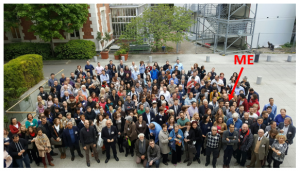
I spent the last few days of August in Stockholm, Sweden, attending the 19th EUROANALYSIS conference, one of the biggest analytical chemistry conferences organized in Europe. This was the first conference I have attended for REMEDIATE and therefore I feel the need to share my experiences with the readers of the REMEDIATE blog.
Organizers and participants
The conference was organized by the Analytical Chemistry Division of the Swedish Chemical Society, in collaboration with the European Chemical Sciences’ Division of Analytical Chemistry and the Swedish Pharmaceutical Society, and despite having “EURO” in its name, it gathered chemists from all around the globe, from Brazil to Japan, from South Africa to Canada. Around 500 of them, to be precise.
Lectures
Aside from the afternoon opening ceremony, Monday was the day for short courses that were taking place from the early morning on. There were many topics to choose from, but one was particularly interesting to me – Solid phase micro-extraction (SPME), offered by Janusz Pawliszyn from the University of Waterloo, inventor of said technique. Because of my own research I am well accounted with SPME, and following the course wasn’t difficult at all, although in 3 hours we covered 30 years of the SPME’s past and at least 10 years of its future. Inspired by the prospects to which I was introduced, full of ideas for improving my own work, I left the lecture room and went to the opening ceremony and first plenary lecture. There, Klaus Unger from Johannes Gutenberg University talked about the history of separation sciences, all the way from their infancy to present day capabilities and challenges. Afterwards, we had the time to display our posters, register, briefly check out who the other participants were, and briefly meet some of them.
On Tuesday, Luigi Mondello from University of Messina compared different multidimensional approaches in coupling chromatography to mass spectrometry, with anemphasis on marine organism lipidomics. Afterwards, Marja-Liisa Riekkola from University of Helsinki presented the work of her group; studying the formation of aerosol particles in the air. Both presentations emphasized the importance of pushing the limits of instrumental analysis even further to unravel the mechanisms behind complicated processes that are happening in the environment.
After the plenary lectures, we had some time to check-out the first group of posters and make contacts with other researchers.
I ended the day by attending session in separation sciences, where lecturers presented their work on nano-LC, tips for improving UPLC conditions, open-tubular LC columns, scaling down and transferring methods to different instruments without the loss of separation efficiency.
The most interesting day for me, however, was Wednesday. It started with a plenary lecture by Stefan Hell from Göttingen’s Max Planck Institute for Biophysical Chemistry. Although my background in imaging and microscopy is very thin, listening to a Nobel Prize laureate talking about STED microscopy turned out to be much easier than I expected. The presenter covered, in very clear, simple and effective way even the most difficult and technical details of his work, ending his talk with some fresh results and future challenges that his laboratory will tackle. Probably the most interesting lecture throughout the conference followed, and it was given by Mario Thevis from the German Sport University Cologne. He concentrated on the analytical work done by his laboratory in order to test professional athletes during major sport events all around the world, such as the Olympic Games. In an extremely charming and engaging way, he demonstrated how far the athletes and their medical advisors are ready to go, just to get the extra boost in strength and stamina, and how creative chemists must be in order to detect those who are “stacking the deck” by abusing forbidden substances. The day continued by having poster sessions of the second group of posters and lecture sessions in imaging, environmental analysis, and electrochemistry.
My 15 minutes of fame
Thursday was my day. Finally, the third group of posters, the group in which my poster was located, was to be visited by attendees. Immediately after arriving to my poster I realized I have made a huge rookie mistake – not enough business cards and no A4 printouts of my poster. Despite that, determined to leave the best possible impression on my audience I explained to everybody who was willing to listen the importance of what I do, how useful it can be, how tough are the challenges that I have to overcome and how everything fits into a big picture called REMEDIATE. Judging by the number of people I talked to and the interest they demonstrated for individual elements of my work, I’d say I did a pretty decent job for a noob. I couldn’t offer a printout, nor a business card, but I think my enthusiasm and interesting story were enough to buy their attention for 10 to 15 minutes. Contacts were made, and comments that I received resulted in some new ideas for the continuation of my experiments.
Summary
All in all, in a very short period of time, I had the opportunity to meet and presented my work to various kinds of people. Their cultural, professional or educational background varied greatly, but the big number of participants ensured that there was always at least a dozen people with whom I shared similar problems, opinions, or interests. Therefore, establishing contacts was not that hard. Presenters were very interesting, regardless of the topics of their lectures, and most of them represented the very top in their own respective fields of research.
Although quite non-specific and broad, this conference was a great opportunity for a young researcher like me to get a grasp of where the final frontiers of the modern analytical chemistry stand. I will definitively try to attend the next one in Istanbul in 2019.
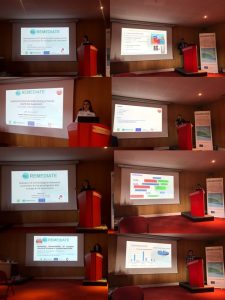
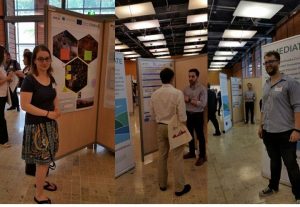

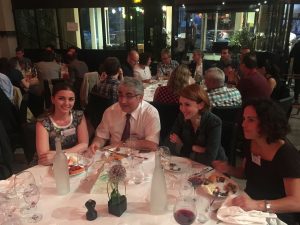

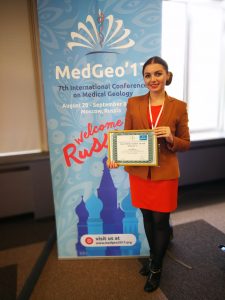
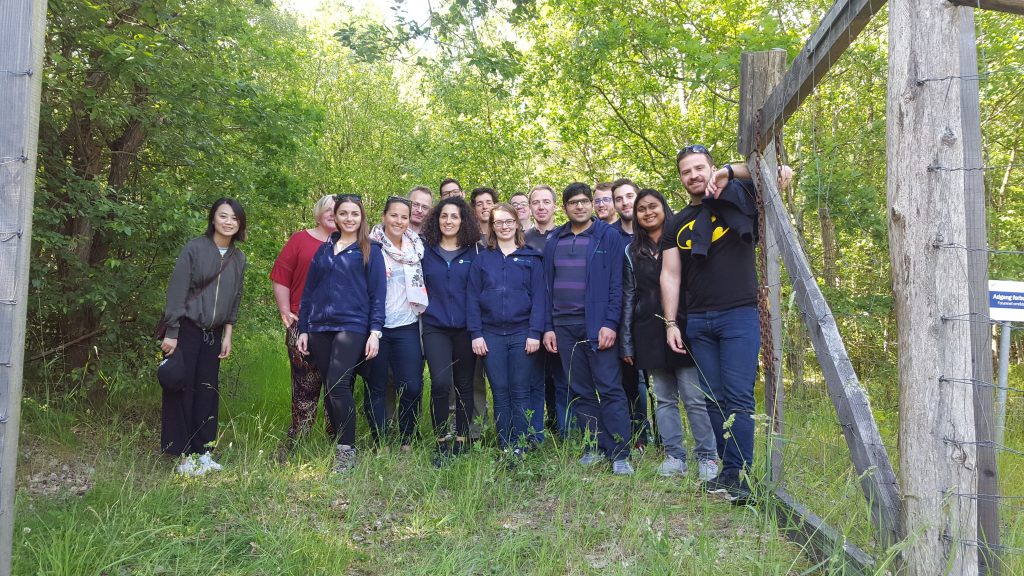
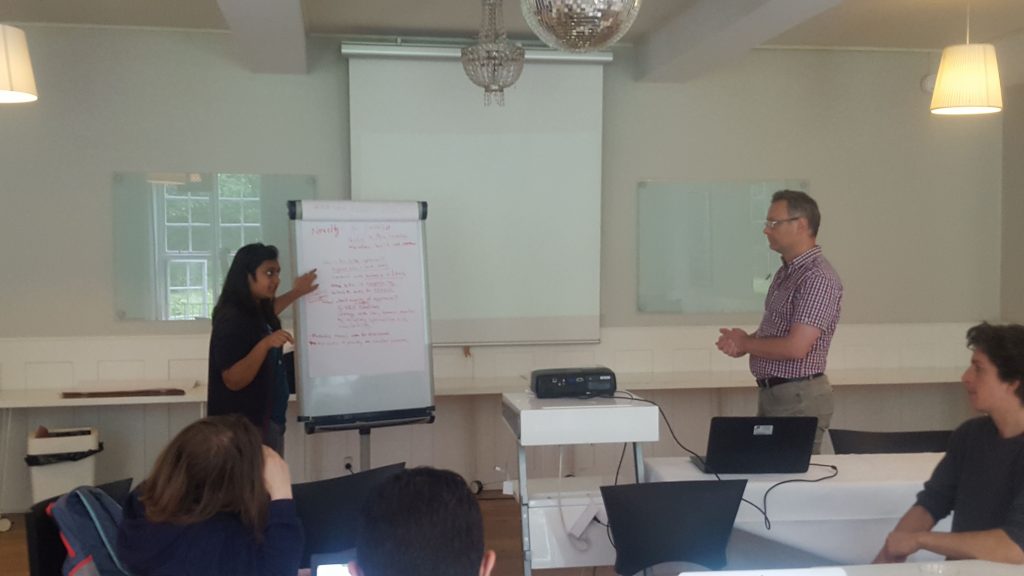
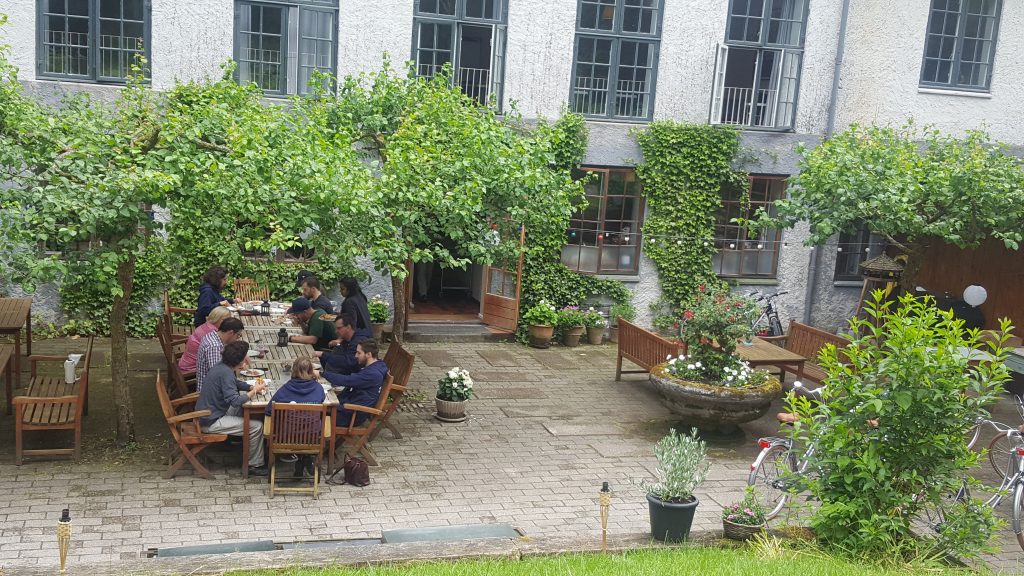
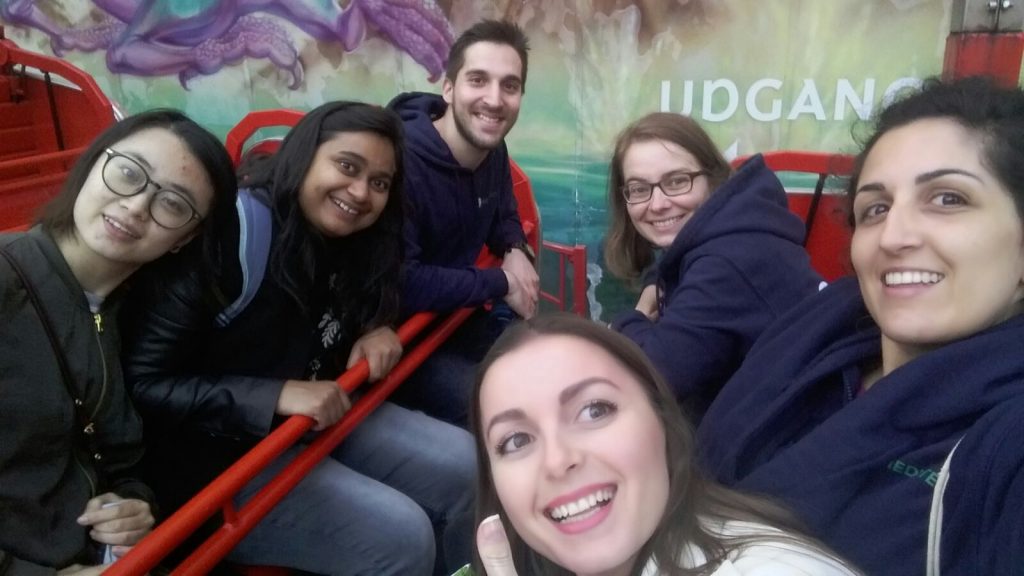
![Taylor, Martin et al. (2010) [1]](https://blogs2.qub.ac.uk/remediate/wp-content/uploads/sites/34/2017/05/06n84-300x240.jpg)
![World Economic Forum (2015) [2]](https://blogs2.qub.ac.uk/remediate/wp-content/uploads/sites/34/2017/05/21stcenturyskills-300x187.jpeg)




